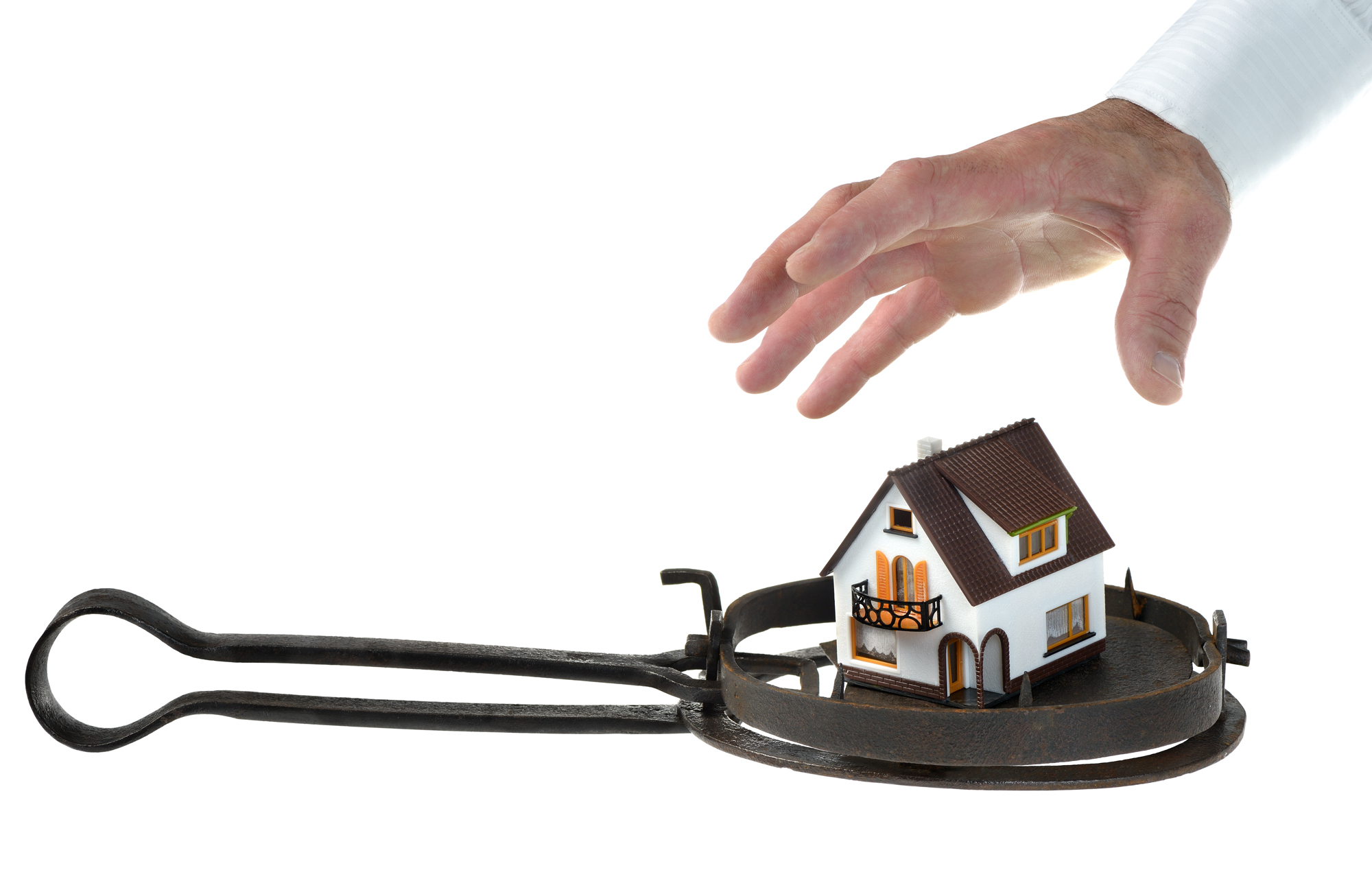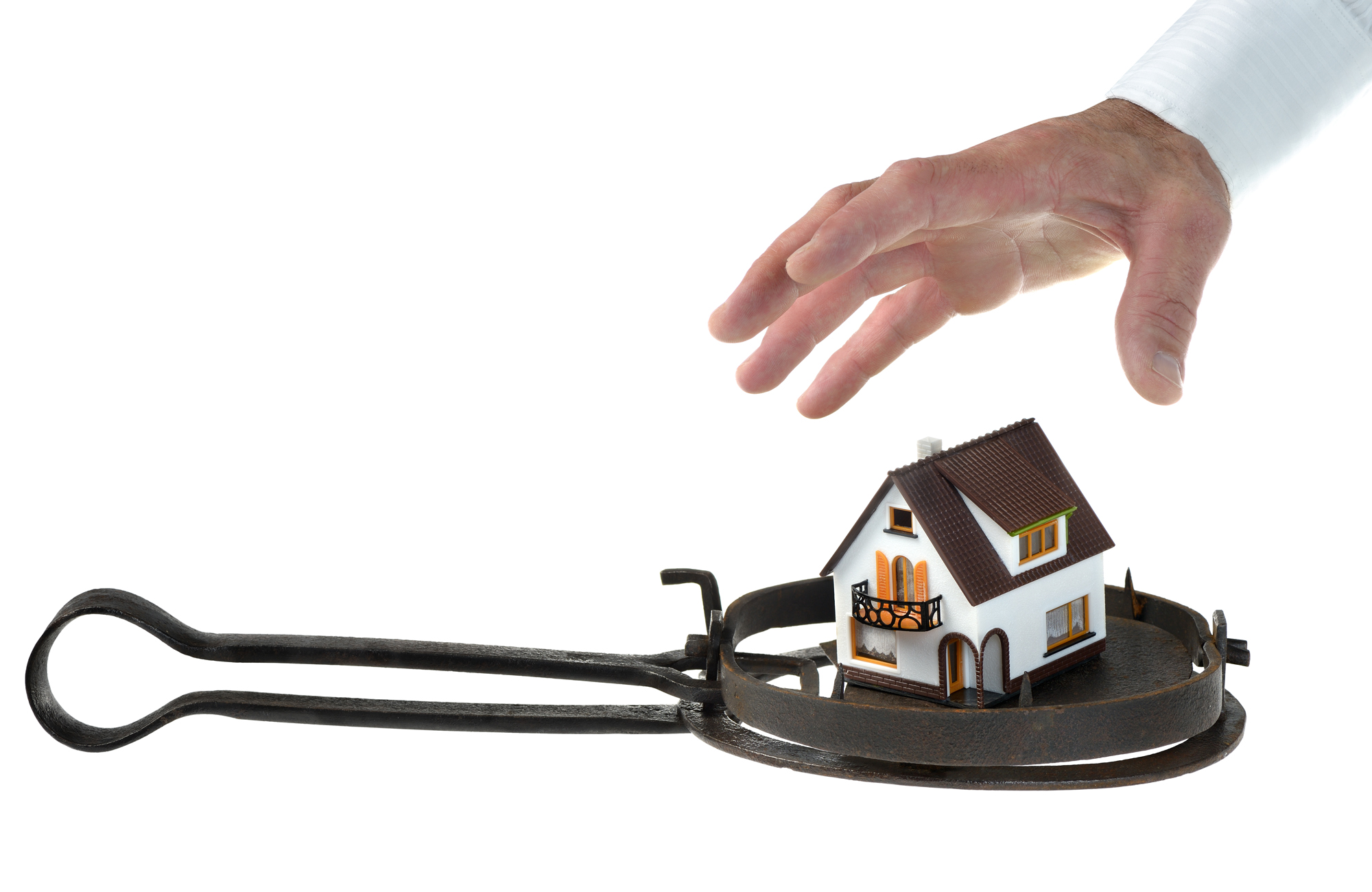Have you ever gotten a phone call, text, or piece of mail about your Houston house that seemed suspicious, threatening, or too good to be true? Or maybe you have experience with a moving company or a foreclosure relief business that tried to take advantage of you or someone you know.
Unfortunately, Houston real estate scams happen. Here’s an overview of what these scammers have done to homeowners in the past, as well as some tips on how to protect yourself from scams.

Unsolicited offers sometimes lead to real estate fraud.
Unsolicited offers are fairly common in Texas, where an individual or company will approach you with an offer to buy your house. You may receive a phone call, an email, a text, a piece of mail, or a knock on your door. These solicitations may come from legitimate house flippers or real estate investors who are simply interested in buying Houston houses. They may also come from people with bad intentions.
In 2024, an elderly Houston woman signed a home sale contract with a disreputable company that lied about how much they would pay her for her house. The company promised her $108,000 but she only received $48,000. In this kind of scam, the buyers overpromised the amount of money the seller would make and tricked her into signing a contract. Scammers might also try to trick the seller into paying “fees” for a home sale that will never happen, or they may simply be after the homeowner’s personal information.
Whether the solicitations are legitimate or not, you can block the numbers in question, join the Do Not Call Registry, or report troublesome callers to the Federal Communications Commission. If you suspect that the people asking you about your house have criminal intentions, consider notifying law enforcement or the Houston FBI office. You can also submit tips to the FBI online.
Escrow wire fraud
With escrow wire fraud, scammers try to get their hands on escrow money. This is often done through fake websites, emails, and phone numbers. For example, if your title company’s website address is “stroud-prescott.com,” you might get an official-looking email telling you to click on a link that leads you to “stroud-prescot.com.” At a glance, it looks like the correct address, only the link takes you to a totally different site. There, you unknowingly wire money into the scammer’s bank account.
This technique is called “spoofing,” and it happens way too often. Spoofing is not the only type of escrow wire fraud, but it is a common one in the era of email, smartphones, and computers. It’s a good idea to call the title company directly to confirm wire transfer instructions.
Sadly, wired money is hard for law enforcement to recover. If you’re a victim, the first step is to contact your bank. The next step is to get in touch with local law enforcement and/or the Houston FBI office.
Foreclosure relief scams
This housing scam takes advantage of people who are behind on their mortgages. A company reaches out to the homeowner, promising to stop foreclosure. The company sometimes claims to have a direct relationship with the homeowner’s lender. The homeowner pays a large fee, and the company does nothing to remedy the foreclosure situation.
These scammers may advertise locally or seek out homeowners with foreclosure notices. The scammers sometimes target specific religious and ethnic communities as well.
Foreclosure relief scams in Houston can be reported to the Federal Trade Commission or the Texas State Attorney General’s office.
Moving scams
Moving scams can come in many forms. A company may lure customers in with a low-ball offer, then threaten to not deliver the homeowner’s goods to the new address unless more money is paid. Other scammers may inflate the weight of the homeowner’s shipment, or they may charge the customer for excess packing materials. Still others may leave blank spaces on the bill of lading (the contract that covers delivery date and what’s included in the shipment) so they can make changes without the homeowner’s consent. It’s helpful to do research on any company you’re thinking of working with to make sure they’re reputable.
If your belongings are being held hostage, you can always contact local law enforcement. Otherwise, moving fraud can be reported to the Federal Motor Carrier Safety Administration. The Department of Transportation’s Office of the Inspector General also offers resources on moving fraud, including a complaint form.
How to protect yourself from Houston real estate scams
Here are some ways to protect yourself from different types of scams:
- Be wary of high-pressure techniques: Scammers often try to pressure homeowners into making fast decisions. This can involve marking an email as urgent or telling you that you must sign a contract now or you’ll miss out on a great opportunity.
- Research the companies or individuals who want to work with you: For people claiming to be real estate professionals, you should ask for license numbers. For moving companies, you can check their USDOT number if you’re planning to move from Houston to another state. Online reviews can be helpful as well. You can also look for red flags, such as a moving or real estate company that lacks an online presence or keeps changing its name.
- Get everything in writing and read contracts carefully: A lot of scammers manipulate documents. As a rule, avoid signing anything with blank spaces. You can also consult with an attorney before signing paperwork. A good technique is to print out all contracts and go over them slowly to make sure you’re not missing anything.
- Be cautious of upfront fees: If the person or company you’re working with demands a large upfront fee, you should treat this as a red flag.
- Practice online safety: Fake websites and dangerous links in emails are just a couple of approaches that cyber criminals use to take advantage of homeowners. Brush up on internet safety and make sure your computers and devices have up-to-date operating systems and antivirus protection.
- If it sounds too good to be true, there’s a chance it is: A lot of times, scammers take advantage of homeowners by making big promises. They might promise you much more than your house is worth or claim they can save you from foreclosure. It pays to be realistic in these circumstances.
- Seek legal advice as needed: It’s always a good idea to speak to a lawyer if you don’t understand an offer or a contract.
We Buy Ugly Houses® is a home buyer you can trust.
While shady moving companies, real estate scammers that impersonate companies like We Buy Ugly Houses®, cyber criminals, and others look for ways to take advantage of homeowners, there are people out there you can trust.
We Buy Ugly Houses has been in the business for 29 years. During that time, we have purchased more than 150,000 properties throughout the country and have earned amazing reviews. We also have a 95%* nationwide customer satisfaction rating. Our Houston team works with people facing a wide range of circumstances. We’re an off-market buyer that Houstonians can depend on.
This blog is for informational purposes only and should not be considered legal advice.















